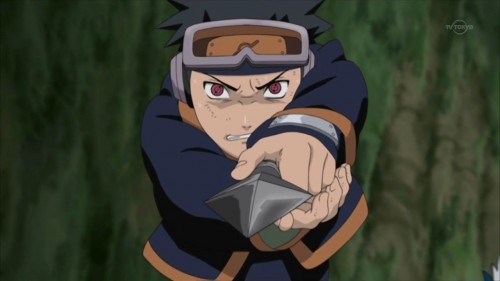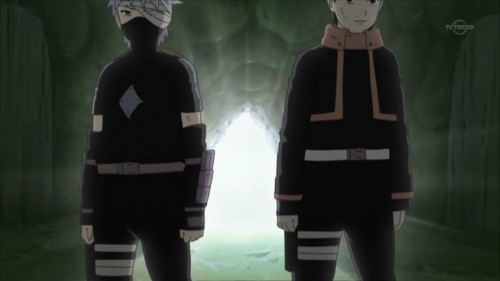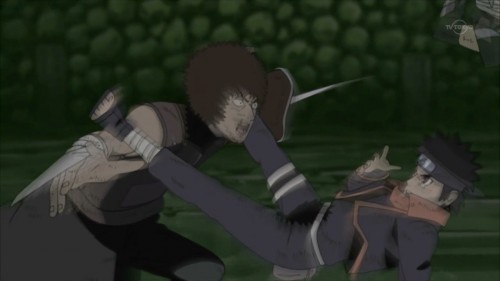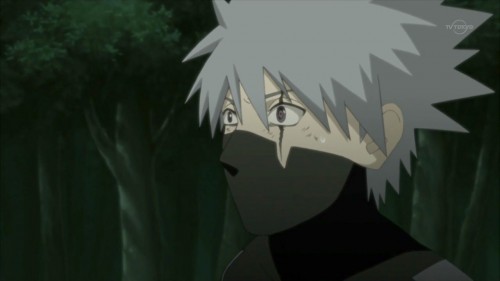Does Masashi Kishimoto think about how children are depicted in Naruto? Ninja are tools of war, after all, and Konoha trains its children to become ninja; isn’t that wrong? On a base, moral level? Of course, Naruto is intended as entertainment and, as such, there’s a certain amount of distance one feels between it and the real world, but to compare it to another boys-orientated action anime, like One Piece, reveals just how dark a world Kishimoto’s characters are born into, a place where children are trained to fight almost as soon as they can walk.

Kakashi Gaiden is one of the series’ most interesting arcs for precisely this reason. A much younger, school-aged Kakashi and his equally as young team-mates, Obito Uchiha and Rin, are sent to the front-lines of the Third Great Shinobi World War, to fight against (and kill, presumably) another country’s blood-thirsty adult ninja. What’s so surprising is just how fierce and cut-throat the various skirmishes become, not least of all when Kakashi loses an eye to the unseen slash of some heartless bastard’s knife. His comrade Obito, still just a naive boy, cries tears of fear when faced with the enemy, his reaction still one of a child (and a perfectly understandable one at that,) and even though he develops bravery enough to fight back, he still loses his life, caught out by the trick of a more experienced warrior.


Obito, the boy, dies. His left eye, with its newly developed Sharingan, is transplanted into Kakashi’s own damaged eye-socket. And so born is the famous Copy Ninja.

There are larger action scenes in Naruto, bigger pay-offs, more dramatic sacrifices, but Kakashi Gaiden is ferocious and exhilarating because it depicts ninja not as super-heroes, but as real people and children, clashing in battle, where there’s no time to stand still and trade philosophies, but merely the quick and the dead. There’s a moral ambiguity at its core, feelings torn between the vicarious thrill of watching a series of awesome encounters with heroic characters, and the reality of seeing these children maimed and killed by a bunch of hardened, heartless soldiers. It’s thrilling in its triumph, but thoroughly sad, too, which is just the way it should be for such a dark premise.

Leave a Reply